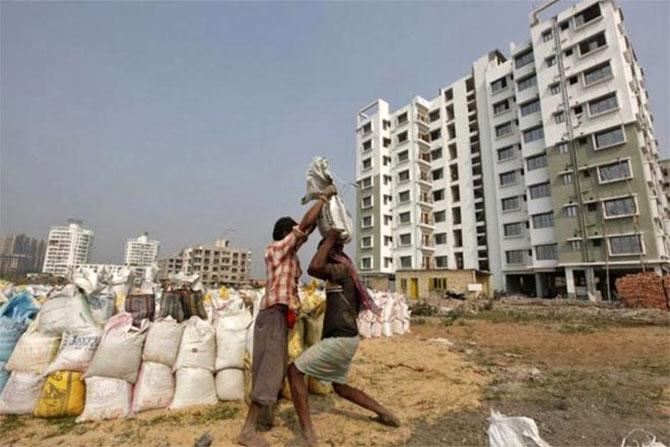 | « Back to article | Print this article |
After coming into effect, the Real Estate Regulation Act will ensure that developers are unable to take home buyers for a ride

Girish, a friend, called up after seeing a full-page advertisement of an under-construction property in a prime location in Mumbai at almost unbelievable prices. He was of the opinion that the real estate market had bottomed out and such incredibly low offers may not be available later.
He told me that he had almost finalised a ready-to-move flat of 1,000 square feet for Rs 3 crore, but this advertisement said that a 1,100 sq ft flat was available for Rs 2.5 crore. The best part: The location was way more convenient.
I asked him to visit the project site and get full details before he took a decision. He called back the same evening, but was a little less enthusiastic. It turned out that there was no cost advantage.
The carpet area for the ready-to-move in flat was 700 sq ft (he had got it measured by his own architect) which meant a price of Rs 42,900 per sq ft for the carpet area. The under-construction property was offering only 600 sq ft despite the advertisement saying that it was a larger flat.
More importantly, there were numerous other costs such as service tax, value-added tax, club house, floor rise, preferential view charges and so on. The total cost came to Rs 3.35 crore.
In effect, on a comparable carpet area basis, it was working out at least 30 per cent more expensive than the other flat. Worse still, the project was at a very initial stage. The developer promised delivery in about 3.5 years - in late 2019. Girish believed that it was unlikely to be delivered in this decade.
But he felt that the construction delay could work in his favour. He would be paying only around 30 per cent of the total price now and the balance would be spread out based on the progress of the construction. In the meantime, he would get the benefit of price appreciation.
I realised it was time to intervene and explain the logic. In the ready-to-move flat, the cost was already fixed. As far as the under-construction flat was concerned, the developers are notorious for increasing the price on various pretexts such as supposed increase in area, better amenities, etc. Buying a product where “what you see is what you get” is very important in an industry such as real estate.
The advantage of delay in construction was also not correct - the interest cost on the initial money paid could far outstrip any benefit, especially if the delay turns into an infinite wait. Also, the interest cost incurred during the construction phase was not tax deductible so its impact was much higher.
A lot of such disadvantages are likely to reduce in severity after the Real Estate Regulation Act comes into force, which is scheduled latest by May 1, 2017. It will ensure compensation for delay and prices cannot be changed at will by developers.
If at all you want to buy under-construction property, wait till that date and then buy in a project that is registered under that Act. Meanwhile, prices are unlikely to increase in the seven months remaining for the Act to come into force. Girish bought my logic and decided to buy the ready-to-move flat that he had originally chosen.
Photograph: Rupak De Chowdhuri/Reuters